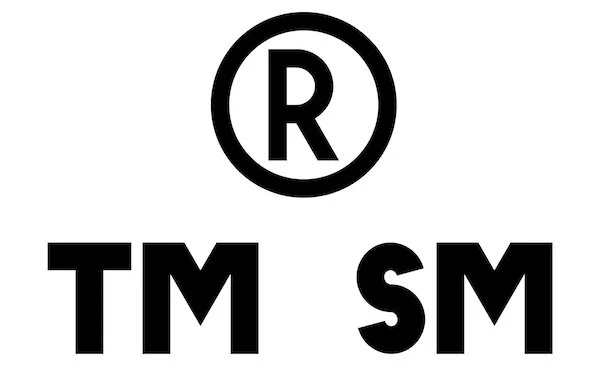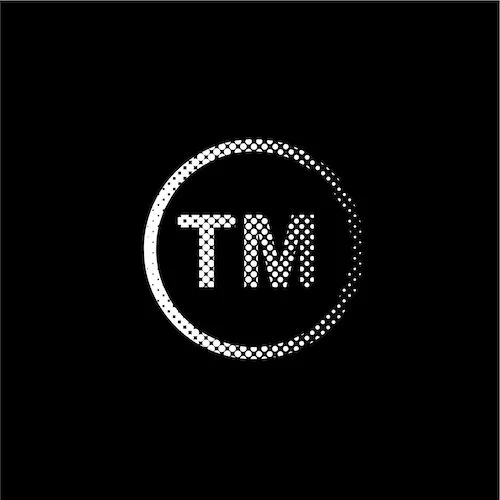Weekly IP Buzz for the Week Ending November 7, 2020
A summary of interesting developments in intellectual property, technology, social media, and Internet law for week ending November 7, 2020. Hospitals have trade secrets too. FAQ on trademarks.
In this week's post, we see with the increased focus and necessity of effective health care, new rules passed by the federal government have hospitals claiming that pricing information qualifies as trade secrets.
Plus, understanding trademarks, the registration process, proper use, and how to maintain and enforce trademark rights is important for companies seeking to grow brand recognition.
Can the Healthcare Industry Claim Pricing as Trade Secret Information to Avoid Disclosure?
As the COVID-19 pandemic continues to wreak havoc across the globe, increased scrutiny has fallen on the national healthcare system. In the United States, the federal government has passed a number of new policies aimed at making the healthcare system more transparent about its pricing, but such initiatives have hospitals and healthcare providers balking at the possibility of having to share pricing information, as they consider pricing as a trade secret.
In the United States, it is common practice for patients seeking treatment or undergoing surgery to rarely know the cost of the treatment provided by medical staff until after the services are provided. From ambulance rides to major surgery, the prices from hospital or healthcare provider often vary from city to city and hospital to hospital. With these new initiatives, the federal government has been looking to change that.
Touting new initiatives as much-needed efforts to make the healthcare system more transparent, the federal government has asked healthcare providers and hospitals to publish the prices of their services. These new measures, the government argues, could help erase the gap between prices that vary widely. For example, according to some studies, common preliminary screenings may cost approximately $11 in one area while reaching a price of over $1,000 in others. Similarly, studies have noted that coronavirus tests have also varied from prices set at $27 in one area to costing $2,315 in others. As such, experts argue that publication of pricing would not only lead to more predictable prices in an industry that has become more vital than ever, but such publication would likely lead to a more uniform pricing model across the country.
Read more here.
Trademark FAQ | A Primer on TM Basics
This article covers common questions with answers to important trademark inquiries about use, registration, maintaining protection, and enforcement, to help trademark owners make the most of their valuable intellectual property rights.
View the full article here for all the details.
Click to read the previous Weekly IP Buzz on Thriving Attorney.
For more posts, see our Intellectual Property Law Blog.
--------
In addition to publishing Thriving Attorney, Darin M. Klemchuk is founder of Klemchuk LLP, a litigation, intellectual property, and transactional law firm located in Dallas, Texas. Click to read more about Darin Klemchuk's practice as an intellectual property lawyer as well as IP mediation services. For more on the latest developments in IP law, see Ideate blog and IP Questions Answered blog.
Weekly IP Buzz for the Week Ending October 30, 2020
A summary of interesting developments in intellectual property, technology, social media, and Internet law for week ending October 30, 2020. Trade secrets and remote workers. Alternative dispute resolution procedures (ADR).
In this week's post, we see with more and more companies allowing employees to work remotely, many employers may overlook the importance of creating new guidelines and policies that govern how employees handle sensitive information or company trade secrets from home.
Plus, the Texas Alternative Dispute Resolution Act (Texas Civil Practices and Remedies Code Section 154) sets forth the requirements in the State of Texas for referral by Texas courts of disputes to alternative dispute resolution procedures (ADR).
The New Normal for Business Should Include Protecting Trade Secrets
The new normal for busines often requires employees to work remotely.
Generally, most employers are familiar with the laws that they need to understand “in the workplace.” But with this new normal for business, company grounds are no longer the only “workplace” that employers need to cover. And especially for smaller companies that may not have had the budget for “company” phones or laptops in the first place, these companies are especially vulnerable if they have their employees conduct business calls or conferences via personal computers or cell phones.
Moreover, with the new use of teleconferencing applications like Zoom, BlueJeans, and WhatsApp, business owners must ask themselves if they have read the Terms of Use for such programs and if they truly understand how the use of these programs may impact their proprietary information.
In today’s new age of working remotely, businesses should consult legal counsel about how to appropriately update their own policies, employee agreements, or standards that dictate how an employee should work from home. Failing to do so could leave companies vulnerable to the loss of valuable intellectual property, trade secrets, or even essential personnel.
Read more here.
Texas Alternative Dispute Resolution Act
The Texas Alternative Dispute Resolution Act (Texas Civil Practices and Remedies Code Section 154) sets forth the requirements in the State of Texas for referral by Texas courts of disputes to alternative dispute resolution procedures (ADR).
Read how the Act addresses ADR procedures here.
Click to read the previous Weekly IP Buzz on Thriving Attorney.
For more posts, see our Intellectual Property Law Blog.
--------
In addition to Thriving Attorney, Darin M. Klemchuk is founder of Klemchuk LLP, a litigation, intellectual property, and transactional law firm located in Dallas, Texas. Click to read more about Darin Klemchuk's practice as an intellectual property lawyer.
Weekly IP Buzz for the Week Ending October 23, 2020
A summary of interesting developments in intellectual property, technology, social media, and Internet law for week ending October 23, 2020. New encryption protocols & law enforcement. Provisional patents.
In this week's post, we see as social media platforms continue to grow in users and features, they have become a common channel for child traffickers and pornographers to use to transmit or capture illegal images. Currently, privacy experts and law enforcement agencies are at odds of how to protect users’ sensitive data while helping exploited children.
Plus, a provisional patent application is optional, but filing one can provide many advantages to inventors.
The Law Conundrum: Encryption for Personal Privacy v. Law Enforcement Needs
As technology becomes more evolved and encryption becomes more necessary, the conflict between personal privacy and national security becomes more fervent, specifically on social media platforms that have become cesspools of illegal activity. For example, in a recent international study, a report warned that approximately 84% of the 68 million child pornography images tracked by experts last year were available and being trafficked through Facebook.
Lately, privacy proponents have been concerned about the lax protection by technology giants of their users’ sensitive information. In response to general public’s increased concern about their privacy online, technology giant Facebook has announced plans to strengthen encryption on its messaging applications, including, for example, WhatsApp, Instagram Direct, and Facebook Messenger App. Despite this, many privacy experts worry that Facebook is still not doing enough. At the same time, however, law enforcement agencies worry that this new trend by technology giants towards stronger encryption will severely impact their ability to catch online pedophiles and traffickers.
Read more here.
The Provisional Patent | A Way To Reserve Rights
A provisional patent grants patent-pending status to an invention. The application is optional and is submitted to allow the applicant additional time to improve the invention or conduct additional research while protecting the invention from being claimed by someone else for a year. Within that period of a year, the applicant must file a corresponding non-provisional application for review by the US Patent and Trademark Office (USPTO) to obtain protection and officially be granted a patent.
Read the full article on the advantages of filing a provisional patent and the process involved.
Click to read the previous Weekly IP Buzz on Thriving Attorney.
For more posts, see our Intellectual Property Law Blog.
--------
In addition to Thriving Attorney, Darin M. Klemchuk is founder of Klemchuk LLP, a litigation, intellectual property, and transactional law firm located in Dallas, Texas. Click to read more about Darin Klemchuk's practice as an intellectual property lawyer.
Weekly IP Buzz for the Week Ending October 16, 2020
A summary of interesting developments in intellectual property, technology, social media, and Internet law for week ending October 16, 2020. Business Entities: Buy-Sell Agreements, and Corporations vs. LLC’s
In this week's post, we look at how a buy-sell agreement provides a clear path for business entities for dealing with a number of unplanned events, including death, divorce, or business disagreements.
Plus, how having the right business entity and protection is a crucial part of starting and growing a successful business in any industry.
Business Entities: Buy-Sell Agreements
Provisions in a buy-sell agreement are critical to the success of a business not being interfered by third-parties or outsiders who may not possess the skills or capital necessary to achieve the organization’s goals.
Simply put, life happens. Priorities in a co-founder’s life may change, business visions may splinter, and disagreements that are unresolvable may occur. In order to fully protect the best interests of all involved and stay out of litigation, dealing with these potential events up front is the best way to minimize the risk of lengthy and costly disputes.
This can be a part of the particular governing documents that allow for an efficient and effective plan to be in a place in case something happens.
Read more here.
Business Entities: Corporations vs. LLC's
If you are just beginning to explore starting a venture or have already started, chances are that you have at least heard about these two forms of business entities - corporations and LLC's. While both provide a form of protection for their owners, they have distinct characteristics so that one form may be much more advantageous than the other depending on the venture.
Find out more here.
Click to read the previous Weekly IP Buzz on Thriving Attorney.
For more posts, see our Intellectual Property Law Blog.
--------
In addition to Thriving Attorney, Darin M. Klemchuk is founder of Klemchuk LLP, a litigation, intellectual property, and transactional law firm located in Dallas, Texas. Click to read more about Darin Klemchuk's practice as an intellectual property lawyer.
Weekly IP Buzz for the Week Ending October 9, 2020
A summary of interesting developments in intellectual property, technology, social media, and Internet law for week ending October 9, 2020. Ban of facial recognition software. Governing documents.
In this week's post, we see with rising concerns that facial recognition software technology can be used in harmful and biased ways, cities are banning the use in public areas.
Plus, a look at business entities and governing documents.
Cities Trend to Ban of Facial Recognition Software in Public
Last month, the city of Portland, Oregon, adopted two new ordinances that prohibit the use of facial recognition technology by both the city and in areas of public accommodation, which will affect some private businesses. In so doing, Portland is only the third city to do so, following the likes of Boston and San Francisco.
In deciding to ban facial recognition software, Mayor Ted Wheeler cited concerns that the technology can be used in harmful and biased ways. As facial recognition software has sometimes led to the incorrect arrest of innocent people, Wheeler, in a live-streamed City Council session, noted that there are “dangers and inequities” in facial recognition software as it currently stands.
While San Francisco and Boston have also already banned the use of such software, Portland’s new ordinances go one step further by banning the use of facial recognition software in “places of public accommodation.”
Read the full article here.
Business Entities: Governing Documents
A crucial component to forming a business entity properly is carefully crafting the documents that will govern the organization in the daily operations and management of affairs, the relationship between the owners and those managing the operations, and the process of dissolving the business or making other substantial decisions in the course of the business cycle.
The names of the documents differ depending on the type of business entity that is used. Because of the different nuances among states, this article will focus on Texas.
All entities that provide liability protection in Texas are formed by filing a Certificate of Formation with the Texas Secretary of State. However, that is just the beginning.
Read more here.
Click to read the previous Weekly IP Buzz on Thriving Attorney.
For more posts, see our Intellectual Property Law Blog.
--------
In addition to Thriving Attorney, Darin M. Klemchuk is founder of Klemchuk LLP, a litigation, intellectual property, and transactional law firm located in Dallas, Texas. Click to read more about Darin Klemchuk's practice as an intellectual property lawyer.
Weekly IP Buzz for the Week Ending October 2, 2020
A summary of interesting developments in intellectual property, technology, social media, and Internet law for week ending October 2, 2020. Might Facebook stop operating in the EU? Also, what Is a franchise?
In this week's post, we see that Facebook recently stated that it may have to shut down its operations in the European Union due to a recent judgment against Facebook under the EU’s GDPR.
Plus, an overview of franchise and franchise disclosure documents.
Facebook Considers Terminating Services in EU after Latest GDPR Ruling
Facebook recently stated that it may have to shut down its operations in the European Union due to a recent judgment against Facebook under the EU’s GDPR.
Since its implementation in 2018, the European Union’s General Data Protection Regulation (“GDPR”) has been held up as the model for stricter privacy laws and regulations. As the United States’ federal government continues to remain silent about how consumers’ sensitive data and privacy should be safeguarded, many jurisdictions, both national and abroad, have passed their own derivatives of the GDPR. Earlier this month, however, in response to a GDPR ruling, Facebook publicly stated that it may not be able to continue providing its services to consumers in the European Union (“EU”).
Read the article here.
Franchise and Franchise Disclosure Documents
A franchise in Texas is governed by the Texas Business Opportunity Act and many people know the likes of large franchise chains such as McDonald’s® and Chick-fil-A®. Texas defines a business opportunity as a sale or lease of more than $500 of products, equipment, supplies, or services that will be used by the purchaser for beginning a business in which the seller represents that the purchaser will make a profit in excess of the amount of the initial investment and the seller will assist buyer in finding a location to sell the products or provide the services, or provide marketing assistance, or will buy back products, or equipment from the buyer.
All franchises in the United States are governed by both State and Federal Laws, and depending on the state you are in, will likely dictate the law that governs your franchise. Thus, when considering whether or not to franchise your business, you should be aware of the Federal Regulations put down by the Federal Trade Commission (FTC) and your specific State laws.
Read more here.
Click to read the previous Weekly IP Buzz on Thriving Attorney.
For more posts, see our Intellectual Property Law Blog.
--------
In addition to Thriving Attorney, Darin M. Klemchuk is founder of Klemchuk LLP, a litigation, intellectual property, and transactional law firm located in Dallas, Texas. Click to read more about Darin Klemchuk's practice as an intellectual property lawyer.
Weekly IP Buzz for the Week Ending September 25, 2020
A summary of interesting developments in intellectual property, technology, social media, and Internet law for week ending September 25, 2020. App notifications. Slogans COVID-appropriate? Tik Tok privacy concerns.
In this week's post, we see that while app users expect certain apps will be accessing their camera and location to run, app notifications could provide insight to use that is unexpected or unauthorized, and alert consumers to update their app preferences or read the app policies and terms of use.
And, sometimes environmental situations can affect the appropriateness of certain trademark use. Brand owners seeking to maintain rights for future use may need to find creative ways to try to maintain rights in their marks. Example: KFC and "Finger Lickin' Good".
Plus, Tik Tok has been under scrutiny for many legitimate reasons, but consumers should understand and be mindful that most apps do access user private data, store it, and use it for various reasons.
Do You Read All You App Notifications? They Could Be Warning of Unauthorized Data Access
As cell phones have become ubiquitous, many may not pay attention to app notifications on their phone, having turned them off or having become used to “clearing” all notifications without a second thought. Sometimes, however, those app notifications may warrant further review.
For example, Instagram users recently sued Instagram’s parent company, Facebook, alleging violations of privacy that stemmed from Instagram’s use of users’ cellphone cameras even when the application was not using the camera directly. When users sign up for Instagram’s services, the application asks for access to the cell phone’s camera, folders, and location services. This is not uncommon as most photograph-sharing services will ask for access to a cell phone’s user’s camera, folders, and location services in order to operate. Specifically, Instagram asks for such permissions in order to: allow the user to take photos within the application; save and upload photographs; and, in order to allow the user to tag the geographical location at which the photograph was taken. A lawsuit against Facebook was filed after users received app notifications about such access that wasn’t expressly authorized.
Read the full article here.
When Intellectual Property Suddenly Sends the Wrong Message: Is Your Slogan COVID-Appropriate?
COVID-19 has certainly infiltrated all areas of the marketplace, often in unexpected ways. In recent weeks, KFC announced that it will be suspending its “Finger Lickin' Good” tagline temporarily, since “finger lickin'” may not be the best advice given the global pandemic and CDC guidelines intended to slow the spread of COVID-19.
KFC, which is owned by Yum! Brands, was widely criticized in the early stages of the pandemic for an ad released in its online and United Kingdom markets featuring dozens of people licking their own—and each other’s—fingers. The ad received swift backlash as “irresponsible” and “encouraging behavior that would increase the spread of COVID-19.” Although known for its irreverent humor, KFC has since confirmed that it removed its famous 64-year old tagline from U.S. markets in March 2020. Since then, a new ad running on YouTube and in KFC markets globally features billboards and buckets of chicken with the famous slogan blurred and admonishing: “That thing we always say? Ignore it. For now.”
While the new campaign is humorous, it highlights an important consideration for companies with regard to intellectual property, as identified by Catherine Tan-Gillespie, global Chief Marketing Officer for KFC: “We find ourselves in a unique situation—having an iconic slogan that doesn’t quite fit the current environment.”
Find the article here.
Tik Tok Claims the Same Privacy Protections as Facebook – But is That Really the Gold Standard?
Privacy concerns regarding the popular short-video social network, Tik Tok, have gone viral in recent weeks. In July, Secretary of State Mike Pompeo said the U.S. was considering banning Tik Tok because it places consumers’ “private information in the hands of the Chinese Communist Party.” Days later, the Democratic National Committee advised staffers not to use it. Even Tik Tok’s target demographic has balked, with gaming superstar Tyler “Ninja” Blevins announcing on July 9 that he had Tik Tok privacy concerns and would be deleting the app.
Personal technology and geopolitics have certainly become increasingly more intertwined. Last summer, India banned Tik Tok and several other Apps from China, citing security concerns. Similarly, many expressed concerns over Russian-made FaceApp, a program that takes photographs and “ages” people using artificial intelligence. So, what’s true and what’s hype?
It’s true that Tik Tok is owned by a Beijing-based company called ByteDance (although the app may be in the process of being sold), but the app is not available in China. And, Kevin Mayer, an American CEO formerly of Disney, was recently hired in an effort to improve the app’s optics. So, is Tik Tok really mining our data? And does the Chinese government really have access to that data?
Read more here.
Click to read the previous Weekly IP Buzz on Thriving Attorney.
For more posts, see our Intellectual Property Law Blog.
--------
In addition to Thriving Attorney, Darin M. Klemchuk is founder of Klemchuk LLP, a litigation, intellectual property, and transactional law firm located in Dallas, Texas. Click to read more about Darin Klemchuk's practice as an intellectual property lawyer.
Weekly IP Buzz for the Week Ending September 18, 2020
A summary of interesting developments in intellectual property, technology, social media, and Internet law for week ending September 18, 2020. Amazon unauthorized sellers. Plus, website terms of use.
In this week's post, we see as Amazon continues to rapidly grow in product offerings with insufficient protections to prevent illegal online sales, big brands are opting out of sales through Amazon and consumers are left to decipher through unauthorized sellers for their own protection.
Also, a Terms of Use agreement or Terms and Conditions, as it is sometimes called, is an important part of an eCommerce website.
Amazon Unauthorized Sellers: Their Low Priced Products Could Cost You Your Safety
Who hasn’t used Amazon for something? It is likely most people have and the giant marketplace is only getting bigger with offering Amazon branded goods claimed as the equivalent of name brands, and its huge base of third-party resellers offering just about anything under the sun. But, consumers should be cautious and informed of the battle of brand names against the rampant rise of Amazon unauthorized sellers, how it can adversely affect consumers, and how illegal sellers can be spotted.
Read more here.
Website Terms of Use
A Terms of Use agreement is important for limiting the potential liability of website owners and operators, protecting intellectual property rights, and establishing other contractual terms or policies relating to the use of the site. In addition, a Terms of Use agreement can also serve as an important marketing tool by setting the tone and providing information about the substance of the website.
The basic objective of a Terms of Use agreement is to form a binding contract with the user that licenses access to the website and use of intellectual property found there, as well as limit the website owner’s liability. Enforceability of a Terms of Use agreement is based on the theory that a contract is formed between the party offering the website and the user of the website. However, the enforceability of this contract depends largely on how the Terms of Use agreement presented to the website user.
Find the full article here.
Click to read the previous Weekly IP Buzz on Thriving Attorney.
For more posts, see our Intellectual Property Law Blog.
--------
In addition to Thriving Attorney, Darin M. Klemchuk is founder of Klemchuk LLP, a litigation, intellectual property, and transactional law firm located in Dallas, Texas. Click to read more about Darin Klemchuk's practice as an intellectual property lawyer.
Weekly IP Buzz for the Week Ending September 12, 2020
A summary of interesting developments in intellectual property, technology, social media, and Internet law for week ending September 12, 2020. Trademark Infringement in Pay-Per-Click Advertising. Patent Types.
In this week's post, we see as an economy is pushing companies into downsizing and budgeting, the use of virtual general counsel services can provide a solution for addressing legal needs without large in-house attorney salaries.
Also, the passage of Florida’s H.R. 1189 genetic data privacy law marks a new development in data privacy regulation and raises a question about genetic data as personal property.
Peace of Mind for Downsizing Companies: Virtual General Counsel
Virtual general counsel refers to experienced attorneys in a specific industry that serve companies as trusted advisors, providing legal advice and services on an as-needed basis that a company may need for a specific event or situation where additional counsel assistance becomes necessary for a period of time. It is meant be real help in a pinch as well as a money saving option.
Those attorneys that have held the General Counsel title know that they are expected to handle legal questions covering a myriad of subjects and areas of law. Even the most experienced general counsel utilize different legal teams and will at some point look to outside counsel assistance to address some legal matters. Virtual general counsel is an option to consider in finding the legal experience needed to quickly advise on or handle certain matters within a budgeted service or temporary program.
Read more here.
Florida Passes New Genetic Privacy Law: Marks Important Development in Privacy Regulation
Genetic data has become increasingly accessible as companies such as 23andMe and Ancestry.com have enjoyed continued popularity since their emergence in the late 1990s and early 2000s. The use of genetic information culled from these kits have been used by a wide range of industries ranging from health coverage to law enforcement. In July, Florida became the first U.S. state to enact a genetic privacy law that creates new prohibitions on health insurance providers when it comes to their use of genetic data.
While the U.S. government has prohibited health insurance companies from requesting genetic information when making coverage and pricing decisions since 2008, when it passed the Genetic Information Nondiscrimination Act (“GINA”), the new Florida law goes one step further by also prohibiting health insurance companies from using genetic data in regards to life, disability, and long-term care coverage decisions. Although it is important to note, however, that if an insured’s DNA results have been already included in their health records, an insurance provider may then legally access it.
Read the full article here.
Click to read the previous Weekly IP Buzz on Thriving Attorney.
For more posts, see our Intellectual Property Law Blog.
--------
In addition to Thriving Attorney, Darin M. Klemchuk is founder of Klemchuk LLP, a litigation, intellectual property, and transactional law firm located in Dallas, Texas. Click to read more about Darin Klemchuk's practice as an intellectual property lawyer.
Weekly IP Buzz for the Week Ending September 4, 2020
A summary of interesting developments in intellectual property, technology, social media, and Internet law for week ending September 4, 2020. Trademark Infringement in Pay-Per-Click Advertising. Patent Types.
In this week's post, we talk about how, in the Northern District of Texas, a judge determined trademark infringement can be found with competitor use of trademarks in pay-per-click advertising cases if specific elements are properly pled.
Also, an overview of three types of patents: utility, design, and plant. They each protect different kinds of inventions.
Trademark Infringement in Pay-Per-Click Advertising: Insight to Win a Case in Texas
Magistrate Judge David Horan of the Northern District of Texas recently provided additional insight into the less-than-clear jurisprudence surrounding liability for trademark infringement in pay-per-click or keyword advertising. In Jim Adler, P.C., et al. v. McNeil Consultants, LLC, et al., No. 3:19-cv-2025-K-BN (N.D. Tex. Aug. 10, 2020), Judge Horan considered Defendant’s Rule 12(b)(6) Motion to Dismiss the trademark infringement claims brought by a personal injury law firm against a lawyer referral service. In granting the motion to dismiss, the Court made clear that trademark infringement claims can arise out of such conduct, so long as specific key elements are satisfied and properly plead. Judge Horan’s recommendation for dismissal was based on the plaintiffs’ failure to properly plead those specific facts.
Read more here, and see examples of the pay-per-click advertising referenced in the case.
Everything to Know About the Different Types of Patents
Learn more about the different types of patent applications and which one is right for you and your invention.
A patent is granted by the U.S. Patent and Trademark Office (USPTO) and provides a legal basis for inventors to exclusively use and protect an invention for a certain period of time. If an invention is granted a patent, the owner may enforce it by bringing an infringement action against anyone who makes, uses, or sells the invention without the patent owner’s permission.
Each type of patent has its own specific requirements, but for an invention to qualify for patent protection it must be unique, non-obvious, and useful.
Read more about utility, design, and plant patents in the article.
Click to read the previous Weekly IP Buzz on Thriving Attorney.
For more posts, see our Intellectual Property Law Blog.
--------
In addition to Thriving Attorney, Darin M. Klemchuk is founder of Klemchuk LLP, a litigation, intellectual property, and transactional law firm located in Dallas, Texas. Click to read more about Darin Klemchuk's practice as an intellectual property lawyer.
Weekly IP Buzz for the Week Ending August 28, 2020
A summary of interesting developments in intellectual property, technology, social media, and Internet law for week ending August 28, 2020. Retailers fighting online organized retail crime. Plus, patent opinions.
In this week's post, we talk about how a patentability opinion provides valuable analysis of an inventor’s claim for patent protection.
Plus, as online marketplaces continue to rapidly grow, there has been little legislation for consumer protection as well as protection for legitimate retailers against counterfeit sellers. The Buy Safe America Coalition was created by large retailer organizations to help push for change in online marketplaces.
The Patentability Opinion: When and Why to Get One
A patentability opinion is a legal analysis of potential claims for a patent, generated by a qualified patent attorney. Requesting a patentability opinion from a registered patent attorney can help an individual or company decide whether to move forward in the patent process. Obtaining this opinion is informative and cost-effective compared to the much larger investment of diving into preparing, filing, and prosecuting a patent application without first conducting research on existing patents and publicly available patent applications.
Read more here.
Retailers Band Together in Buy Safe America Coalition to Fight Online Organized Retail Crime
Large retailers have banded together in the Buy Safe America Coalition to push for law reform against online retail crime. Buying products online is often a necessity these days, but knowing whether it is legitimate can be hard to determine. And, legitimate brand owners have to continuously monitor for unauthorized sales, counterfeit goods, stolen property re-sales, and the like, that ultimately hurt their bottom line in both sales and tarnish their brands. With insufficient legislation to address these issues, large retailers are seeking change.
Therefore, on August 14, 2020, the Buy Safe America Coalition was launched by the Retail Industry Leaders Association (RILA) in conjunction with numerous other retail industry groups such as, for example, the American Apparel & Footwear Association, Consumer Healthcare Products Association (CHPA), the Toy Association, the Fashion Jewelry and Accessories Trade Association, and others. The coalition aims to create real change in legislation to help with online seller crime.
Learn more here.
Click to read the previous Weekly IP Buzz on Thriving Attorney.
For more posts, see our Intellectual Property Law Blog.
--------
In addition to Thriving Attorney, Darin M. Klemchuk is founder of Klemchuk LLP, a litigation, intellectual property, and transactional law firm located in Dallas, Texas. Click to read more about Darin Klemchuk's practice as an intellectual property lawyer.
Weekly IP Buzz for the Week Ending August 21, 2020
A summary of interesting developments in intellectual property, technology, social media, and Internet law for week ending August 21, 2020. Why get a patent? Plus, International business transactions.
In this week's post, we talk about the benefits of obtaining a patent and how they work to protect your invention.
Plus, although companies can take a number of precautions to limit their risks in international transactions, the primary legal tool for such purposes is the sales contract.
Why Get a Patent? How Do Patents Work?
The process of obtaining a patent can be expensive and time-consuming. Understanding some of the benefits and how patents work can give you a better idea of whether the investment is the best option for you and your invention. The benefits of pursuing patent protection may include business protection and improvement, and monetary gain.
Read the full article here.
International Business Transactions
In the modern global economy, even relatively small companies are aware of the savings and opportunities available by sourcing or exporting products outside the United States. Of course, these opportunities often involve additional risks, as well. Although companies can take a number of precautions to limit their risks in international transactions, the primary legal tool for such purposes is the sales contract.
In the world of transactional law, unpredictability and ambiguity are “dirty words”. When a contract fails to clearly address a given situation and a dispute arises, it often takes a judge or jury to determine the correct result. Most companies would prefer to know what their rights and obligations are in a contract, rather than leave such decisions to a judge or jury. As such, transactional lawyers go to great pains to eliminate unpredictability and ambiguity — a task made more difficult when the parties to a contract are from different countries.
Read the rest of the article here.
Click to read the previous Weekly IP Buzz on Thriving Attorney.
For more posts, see our Intellectual Property Law Blog.
--------
In addition to Thriving Attorney, Darin M. Klemchuk is founder of Klemchuk LLP, a litigation, intellectual property, and transactional law firm located in Dallas, Texas. Click to read more about Darin Klemchuk's practice as an intellectual property lawyer.
Weekly IP Buzz for the Week Ending August 14, 2020
A summary of interesting developments in intellectual property, technology, social media, and Internet law for week ending August 14, 2020. Commercial leases. Plus, arbitration clauses between attorneys & clients.
In this week's post, we talk about a few of the more important clauses involved in almost all commercial leases.
Plus, a discussion of the pros and cons of using arbitration agreements in attorney-client relationships to help with potential disputes.
Common Important Clauses of Commercial Leases
A commercial lease is something that you will likely encounter if you run your own business, whether it is leasing a location for your retail shop or an office space for your service-based business. This article covers a few of the more important clauses involved in almost all commercial leases, including "Use and Exclusives Clause" and "Improvement and Alterations Clause."
Read more here.
Arbitration Clauses Between Attorneys and Their Clients: The Factors to Consider
Arbitration clauses have become "increasingly common in lawyer fee agreements." Generally speaking, arbitration provisions with clients are more ethically acceptable for resolving fee disputes as opposed to malpractice claims. Several bar associations across the country have established rules encouraging the informal resolution of fee disputes between lawyers and their clients, such as arbitration or mediation procedures.
Find the full article here, including the eight factors of client arbitration agreements.
Click to read the previous Weekly IP Buzz on Thriving Attorney.
For more posts, see our Intellectual Property Law Blog.
--------
In addition to Thriving Attorney, Darin M. Klemchuk is founder of Klemchuk LLP, a litigation, intellectual property, and transactional law firm located in Dallas, Texas. Click to read more about Darin Klemchuk's practice as an intellectual property lawyer.
Weekly IP Buzz for the Week Ending August 7, 2020
A summary of interesting developments in intellectual property, technology, social media, and Internet law for week ending August 7, 2020. Washington Football Team rebrand. Trademark assignment recordation.
In this week's post, we see how trademark assignments should be promptly recorded with the USPTO to provide public notice and prevent the potential for losing such rights.
Plus, as the Washington Football Team seeks to rebrand, it is important to consider public opinion, third party use/rights, options for challenging third party rights claims, and obtaining a name that should last the test of time.
Trademark Assignment Recordation: Don’t Lose Your Rights
In previous posts, Brian Casper discussed some of the technicalities, principles, and perils associated with licensing and selling trademarks. Once you get the assignment right, there is still one final formality that you should follow—trademark assignment recordation with the USPTO.
The benefit of recording the assignment is that it can no longer be assigned to someone else. Additionally, if it was paid for with “valuable consideration”—i.e. real money—any prior unrecorded assignments will be voided by the recorded assignment as long as it was assigned without any notice of a prior assignment and is recorded within 3 months of the assignment.
Read the full article here.
Redskins No More | The Washington Football Team Rebrand: The Journey Ahead
Washington D.C.’s NFL team has had a long battle with defending and maintaining its brand, ultimately culminating with a decision to drop the Redskins’ name and look to a brand name change. With the most recent national uproar against racism, the NFL’s Washington football team’s rebrand became inevitable.
In 2014, after an 8-year battle against a cancellation action, the United States Trademark Office (“USPTO”) cancelled six trademark registrations owned by the Washington team on the basis that the word “Redskins” was disparaging to Native Americans. Even then, the team owner, Dan Snyder, held on to the name, pledging never to rebrand. The team was left to protect its rights in the name only via state and/or a common law basis.
However, with the changing times, heightened sensitivities, a global pandemic, and a national outrage against racism, large companies began backing out of sponsorships and ventures including any third parties with even a seemingly potential for appearing to have racist ideals. Therefore, the decision for the Washington football team rebrand was finally made, whether willingly or not.
But, why have they decided on the generic “Washington Football Team” brand for the 2020 season? It appears the team is carefully and smartly weighing options before moving full force ahead, to help prevent another long battle surrounding its brand name.
Read more here.
Click to read the previous Weekly IP Buzz on Thriving Attorney.
For more posts, see our Intellectual Property Law Blog.
--------
In addition to Thriving Attorney, Darin M. Klemchuk is founder of Klemchuk LLP, a litigation, intellectual property, and transactional law firm located in Dallas, Texas. Click to read more about Darin Klemchuk's practice as an intellectual property lawyer.
Weekly IP Buzz for the Week Ending July 31, 2020
A summary of interesting developments in intellectual property, technology, social media, and Internet law for week ending July 31, 2020. YouTube’s copyright bots. Exit strategy for trademark license agreements.
In this week's post, we see how YouTube’s copyright infringement system faced a blunder amongst media giants when copyright bots took down live streaming of video from the San Diego Comic-Con media conference.
Plus, trademark licensing agreements should include provisions to help both licensees and licensors come to agreement on what happens with remaining inventory at the end of the license term via exit strategy requirements.
YouTube Copyright Bots: Finding the Right Balance for Copyright Infringement Takedowns
Much like most online platforms that allow for third-party posting of content, YouTube has struggled with copyright infringement issues. However, YouTube seems to get the most criticism for just not finding the sweet spot with using their content ID system and copyright bots for systematically handling copyright issues.
Recently, at San Diego Comic-Con (“SDCC”) which was held virtually and livestreamed by ViacomCBS, the streaming of a reading of the season 2 finale of Star Trek: Discovery was suddenly blocked and replaced with a black and white screen with a copyright violation notice citing the CBS Content ID. YouTube’s copyright bots “sensed” the similarities between the sounds and images in the livestream with that of material in YouTube’s content ID system for CBS copyrights and automatically blocked the video stream.
Clearly, such livestreaming of CBS’s own material would not be unauthorized or copyright infringement. However, the YouTube copyright bots did as they are intended to do and put a quick stop to a seeming copyright violation. It took about 20 minutes for ViacomCBS to get things straightened out with YouTube for restoration of the livestream and continuation of the SDCC media conference.
With copyright infringement rampant on social media platforms and the legal requirements such Internet service providers must abide by to help to prevent unauthorized use of content, companies rely on technology to help streamline monitoring and enforcement process.
Read more here.
Trademark License Agreements: Provisions to Consider for End of License Term
Brian Casper briefly discussed exit strategies for licensing agreements in a white paper entitled Brian Casper on Trademark Licensing. In this post, he discusses what can go wrong if there is not an adequate exit strategy and explores some licensing end of term provisions for the benefit of licensors as well as licensees.
Early in my career I had the good fortune of representing a very popular professional golf star, John Daly. This golf pro had entered into a licensing agreement with a golf club company, Hippo Golf Co., to use his trademark. When the license ended, the company continued to sell their remaining inventory and use the pro’s name and likeness. I was able to secure a $1.5 M judgment against the company for this business indiscretion. So why didn’t this agreement have a sell off provision? I was not involved in the contract drafting or negotiation, but I can speculate that this was by design.
When you are the licensor and you have the upper hand in the trademark licensing negotiation, you have a tremendous advantage if you can avoid a sell off provision—or even require the certified destruction of any remaining products. When it comes time to renew the agreement, the licensee will have the added pressure of losing the value of the remaining inventory. But for most trademark license agreements, the parties will be on more equal footing and there will be some exit strategy provision for selling off the remaining inventory.
Read the full article here.
Click to read the previous Weekly IP Buzz on Thriving Attorney.
For more posts, see our Intellectual Property Law Blog.
--------
In addition to Thriving Attorney, Darin M. Klemchuk is founder of Klemchuk LLP, a litigation, intellectual property, and transactional law firm located in Dallas, Texas. Click to read more about Darin Klemchuk's practice as an intellectual property lawyer.
Weekly IP Buzz for the Week Ending July 24, 2020
A summary of interesting developments in intellectual property, technology, social media, and Internet law for week ending July 24, 2020. Privacy lacking on mobile phone clipboard data. Goodwill as asset.
In this week's post, we see that cell phone users were dismayed to recently find out that popular web applications were copying and storing the contents of their phones’ clipboards.
Plus, goodwill is an important and highly valuable intangible asset derived from consumer perception and desire for a specific product or service. Trademark protection involves guarding the reputation that built the goodwill in a brand.
Another Way You’re Losing Your Privacy: Mobile Clipboard Data
A number of social networking platforms have come under fire when it was recently revealed that mobile applications installed onto cellular phones could have found a new insidious way to spy on user information—by copying the contents of a user’s clipboard data.
In technological lexicon, the “clipboard” originally referred to a small, temporary buffer that operating systems provided for users to utilize as a short-term storage space that could allow the user to transfer a small amount of information from application to application or from window to window. As technology improved, the storage space and capabilities of the clipboard increased, and many operating systems expanded the clipboard to be able to hold multiple entries or even give users the option to “lock” specific clipboard entries so that the user could permanently have access to the entry until purposely deleted.
But, unfortunately, it was recently revealed that a number of big-name companies behind popular phone applications such as Reddit, TikTok, and LinkedIn were actually copying and storing the contents of their app users’ clipboards. While some companies have claimed that the coding behind such copying was for innocuous reasons, (e.g., Reddit claims the code was to help suggest post titles) others have simply declined to comment. Many of the most high-profile companies, including the aforementioned three, however, have promised to remove the code and discontinue the practice.
Most of the privacy violations were uncovered after the rollout of a new privacy feature released in iOS 14 that alerted users when applications they had opened were copying their clipboard. Obviously, the implications behind such copying would mean that these applications could be keeping records of any information you have ever copied, pasted, or simply stored on your clipboard. For many, clipboard information is not only information that is often copied for use between applications, but also, clipboard information may include highly sensitive personal data such as: social security numbers; passwords; credit card numbers; or bank routing numbers, etc.
Read more here.
What Is Goodwill and Why Should It Be Protected?
In previous posts on trademarks, we've discussed the fact that trademark rights stem from the use of the mark on certain goods or services—and when licensed or sold, must always be accompanied by the goodwill associated with the products or services. This post discusses the significance of goodwill.
To better understand the technicalities of trademark law, it’s instructive to look into the principles behind the law. And it can be enlightening to look to older cases to get a feel for the bedrock principles behind the law. Back in 1877, the Supreme Court looked at the function of trademarks as a protector of goodwill and why you don’t have an unrestricted right to sell goods under your own name if that name is already being used as a trademark.
As the Supreme Court understood it, the concept of goodwill was paramount to the analytical framework yet tied firmly to the trademark. It encapsulates the experience that consumers have with a particular brand. You put your mark on your goods, customers buy those goods, and if they are satisfied and want more, they seek out your brand again. The trademark symbolizes not just the qualities those customers seek out, but also the reputation of the business. The goodwill is measured by the customer’s willingness purchase those goods from that source again.
Read the full article here.
Click to read the previous Weekly IP Buzz on Thriving Attorney.
For more posts, see our Intellectual Property Law Blog.
--------
In addition to Thriving Attorney, Darin M. Klemchuk is founder of Klemchuk LLP, a litigation, intellectual property, and transactional law firm located in Dallas, Texas. Click to read more about Darin Klemchuk's practice as an intellectual property lawyer.
Weekly IP Buzz for the Week Ending July 17, 2020
A summary of interesting developments in intellectual property, technology, social media, and Internet law for week ending July 17, 2020. YouTube faces another lawsuit from music industry. Arbitration proceedings.
In this week's post, we see that YouTube faces another lawsuit from the music industry. This time a class action threatens YouTube with complaints of massive copyright violations from its content ID system.
Plus, while both litigation and arbitration proceedings are different ways to settle business disputes, the use of arbitration provisions in agreements could prove to help resolving disputes in a less expensive and efficient manner.
YouTube Sued Over Use of Content ID System
YouTube finds itself in the middle of another big lawsuit as a class action lawsuit was recently filed in California by a group of music artists that include Grammy winners. Maria Schneider is the named plaintiff on a class action filed against the technology giant’s management of its Content ID system.
Content ID refers to a copyright infringement takedown system that is relatively automated that allows the owners of copyrighted works to monetize content that the system finds in other works as opposed to straight out have the content removed. Using an automated system, a programmed bot skims other platforms for data and compares it to copyrighted data in its database to determine whether the protected work is being used in third-party content.
In the copyright suit against YouTube, Plaintiffs allege that the issue is the fact that the Content ID system favors more well-known artists. And as such, not only are the lesser known artists unable to capitalize and monetize their content in the same way, but they also have the added onus of having to police their own content and file takedowns in the traditional way of sending out multiple notices.
Read the full article here.
Arbitration Proceedings: The Advantages and Disadvantages of Arbitration
Both litigation and arbitration are methods of addressing disputes and each have their pros and cons. The choice of which avenue to take will depend on the given dispute. This article explains arbitration options in agreements and the potential advantages of them.
Arbitration is a private process that addresses a complaint. In the U.S., the default process for disputes is for our courts to hear and redress a complaint—also referred to as litigation. Over centuries, the judicial system developed several requirements and mechanisms to protect those involved and to resolve a complaint—such as institutional bodies, procedural requirements, discovery tools, evidentiary standards, factual decisionmakers, legal conclusions, remedial mechanisms, and appellate reviews.
The primary alternative to litigation is an arbitration proceeding. This process involves a contractual agreement between parties to give up their default right to have our courts resolve a dispute and to select a different process and institution that will resolve the dispute. Arbitration is the privatized version of public litigation. In fact, courts also order parties to mediation (a form of arbitration) before proceeding to trial.
Read the full article here.
Click to read the previous Weekly IP Buzz on Thriving Attorney.
For more posts, see our Intellectual Property Law Blog.
--------
In addition to Thriving Attorney, Darin M. Klemchuk is founder of Klemchuk LLP, a litigation, intellectual property, and transactional law firm located in Dallas, Texas. Click to read more about Darin Klemchuk's practice as an intellectual property lawyer.
Weekly IP Buzz for the Week Ending July 10, 2020
A summary of interesting developments in intellectual property, technology, social media, and Internet law for week ending July 10, 2020. Supreme Court sides with Booking.com. Plus, naked licensing.
In this week's post, we see how after a long battle to gain registration of the Booking.com trademark, Booking.com wins in a Supreme Court decision finding that .com can make an otherwise generic term a source identifier.
Plus, claims of naked licensing and trademark abandonment require proof the owner didn’t transfer the goodwill and that with any non-use there was also no intent for future use.
Supreme Court Settles Long Battle for Booking.Com Trademark
In a closely watched trademark case, the Supreme Court has decided in favor of the Booking.com trademark, which means that some companies may now trademark otherwise generic terms with the “.com” domain identifier, if they have become source identifiers, without fear of outright rejection from the U.S. Trademark Office.
The Booking.com case began back in 2011 when Booking.com filed trademark applications to register the BOOKING.COM trademark. The U.S. Trademark Office had denied the applications, stating that “booking” was a generic term and that including “.com” into the mark did not allow it to qualify as a bona fide mark under trademark law. At the lower court levels, however, federal courts found for Booking.com, resulting in repeated appeals all the way up to the Supreme Court.
However, in a landmark decision, the Supreme Court ruled, 8 to 1, that adding “.com” to an otherwise generic term may make that combination eligible for federal trademark protection. This is a clear departure from the U.S. Trademark Office’s stance that merely adding “.com” does not make an otherwise generic term eligible for the trademark register.
Read more here.
Mustang Ranch Brothel Teaches Lessons of Naked Licensing and Trademark Abandonment Claims
The white paper Brian Casper on Trademark Licensing discussed several ways a trademark owner could lose the right to enforce its trademark. The interesting case of the “World-Famous Mustang Ranch Brothel” highlights some important limitations on the prohibition of naked licensing and the concept of abandonment.
To recap from the previous paper: A naked license is an assignment of a trademark without the corresponding goodwill associated with that trademark. Abandonment is presumed under the law when a trademark owner ceases use of a mark for a period of three years with the intent not to resume use.
The 2006-2008 U.S. District Court case of Burgess v. Gilman out of the District of Nevada has an excellent discussion about the limits of naked licenses and the presumption of abandonment. The facts of that case are interesting: The World-Famous Mustang Ranch Brothel was seized in 1999 by the U.S. Department of the Treasury in conjunction with criminal proceedings against the former owner who was convicted of racketeering. The Government held on to the property—with no intent on operating a brothel—from 1999 until it was transferred to the Bureau of Land Management and auctioned off in 2003. However, while the Government did not consider operating a brothel while it held the property and business for four years, it did consider selling or licensing it to a third party, who could use those assets to operate a brothel. And this is what happened in 2003 when Gilman was the highest bidder on the buildings and the “World Famous Mustang Ranch” trademark.
Read the full article here.
Click to read the previous Weekly IP Buzz on Thriving Attorney.
For more posts, see our Intellectual Property Law Blog.
--------
In addition to Thriving Attorney, Darin M. Klemchuk is founder of Klemchuk LLP, a litigation, intellectual property, and transactional law firm located in Dallas, Texas. Click to read more about Darin Klemchuk's practice as an intellectual property lawyer.
Weekly IP Buzz for the Week Ending July 3, 2020
A summary of interesting developments in intellectual property, technology, social media, and Internet law for week ending July 3, 2020. Google on the hook for $5 Billion? Plus, Trademark Licensing white paper.
In this week's post, we see how Google potentially faces billions in alleged fines over its web services that offer or are related to its “private browsing” or “incognito” modes.
Plus, a white paper discussing Trademark Licensing.
Is Private Browsing Really Private? Google Faces Class Action Lawsuit
With the option for utilizing “private browsing” for searching the Internet, do you know just how private such browsing really is? Google will have to answer, as it recently came under fire after a proposed class action lawsuit was filed against it in the U.S. District Court for the Northern District of California.
With alleged damages adding up to $5,000 per individual, at its minimum, the class action alleges that millions of Google users have had their privacy rights violated by a myriad of Google applications. At the heart of the lawsuit, however, is the allegation that the “incognito” or “private browsing” mode of Google’s web browser, Chrome, is not private at all. Instead, the complaint alleges that the “incognito” mode of Chrome actually tracks users even when it purports not to. When asked about the allegations, Google released a statement noting that users have always been aware that “each time you open a new incognito tab, websites might be able to collect information about your browsing activity....”
Read the full article here.
Brian Casper on Trademark Licensing
While most people lump trademarks in with patents and copyrights when thinking about intellectual property in a general sense, when it comes to licensing, there are some fundamental differences that make licensing trademarks more challenging.
Unlike patents and copyrights, which can be bought and sold like commodities, trademarks have a much more personal relationship with the goods and services they are associated with.
This paper offers some general background and guidance for both prospective licensors and licensees, along with some sample language that should be included in any comprehensive license agreement.
Read the white paper here.
Click to read the previous Weekly IP Buzz on Thriving Attorney.
For more posts, see our Intellectual Property Law Blog.
--------
In addition to Thriving Attorney, Darin M. Klemchuk is founder of Klemchuk LLP, a litigation, intellectual property, and transactional law firm located in Dallas, Texas. Click to read more about Darin Klemchuk's practice as an intellectual property lawyer.
Weekly IP Buzz for the Week Ending June 26, 2020
A summary of interesting developments in intellectual property, technology, social media, and Internet law for week ending June 26, 2020. Tiger King & IP Infringement. IBM & Weather Channel app lawsuit.
In this week's post, we see how internet sensation Joe Exotic found himself on the wrong side of the law earlier this month when a federal judge ruled that Exotic’s transfer of his zoo to his mother was illegal, and as such, the zoo must be transferred to Carole Baskin as payment for the judgment Baskin won against him over IP infringement claims.
Plus, IBM became the first big technology giant to challenge California’s stringent consumer privacy laws by filing two motions for summary judgment in response to a suit brought by the L.A. City Attorney’s Office.
Even the Tiger King Has to Answer to the Law
Joe Exotic and Carole Baskin are names that quickly became well-known household names as their struggles against each other, including a myriad of IP infringement claims, were aired for the world to see in the form of entertainment on Netflix.
One 2020 series, in particular, Tiger King: Murder, Mayhem and Madness, became a national phenomenon due to its chronicling of the bizarre and unconventional lives of exotic animal owners.
While the series boasted a bevy of eccentric characters, the series mainly focused on the rise and fall of self-proclaimed “Tiger King” Joe Maldonado-Passage (a.k.a. Joe Exotic) and the fallout from his ongoing rivalry with Carole Baskin, owner of Big Cat Rescue Corporation.
If one looks beyond the sordid details of Joe Exotic’s three marriages or the suspicious disappearance of Carole Baskin’s first husband, nestled between all the crazy layers of the show was an intellectual property dispute between Exotic and Baskin. The fourth episode: “Playing with Fire,” focused on the legal battles between the two, which hinted at claims and counterclaims of IP infringement, including trademarks and copyrights, false advertising, misuse of domain names, and bankruptcy filings. Peppered throughout the episode are segments from depositions of Joe Exotic, taken by Baskin’s attorney, as well as screenshots of social media sparring between the two.
Read the full article here, which includes links to some of the most relevant related cases.
IBM Challenges California Privacy Law
With the lack of an all-encompassing federal privacy law to address the sale, use, and gathering of consumers’ personal data, many states have enacted their own privacy laws. And as usual, California passed the most stringent consumer privacy statute with many experts lauding its provisions. But earlier this month, IBM became the first technology giant to truly test and challenge the California Privacy Law statute by fighting against it in a lawsuit brought against its Weather Channel mobile application.
In California, the L.A. City Attorney’s Office brought suit against IBM’s Weather Channel application under allegations that it had violated the California Consumer Privacy Act because the application was collecting privacy geolocation data from its users and selling said data for profit. In response to the suit, IBM submitted a motion for summary judgment stating that users had been informed of such use and sale when they agreed to use the application.
IBM claims that although the disclosures were not front and center on any landing page in the mobile application, the disclosures had always been available on the Weather Channel application’s privacy policy page on the Internet. In other words, IBM maintains there was disclosure available for any user to easily obtain.
Find the full article here.
Click to read the previous Weekly IP Buzz on Thriving Attorney.
For more posts, see our Intellectual Property Law Blog.
--------
In addition to Thriving Attorney, Darin M. Klemchuk is founder of Klemchuk LLP, a litigation, intellectual property, and transactional law firm located in Dallas, Texas. Click to read more about Darin Klemchuk's practice as an intellectual property lawyer.












































